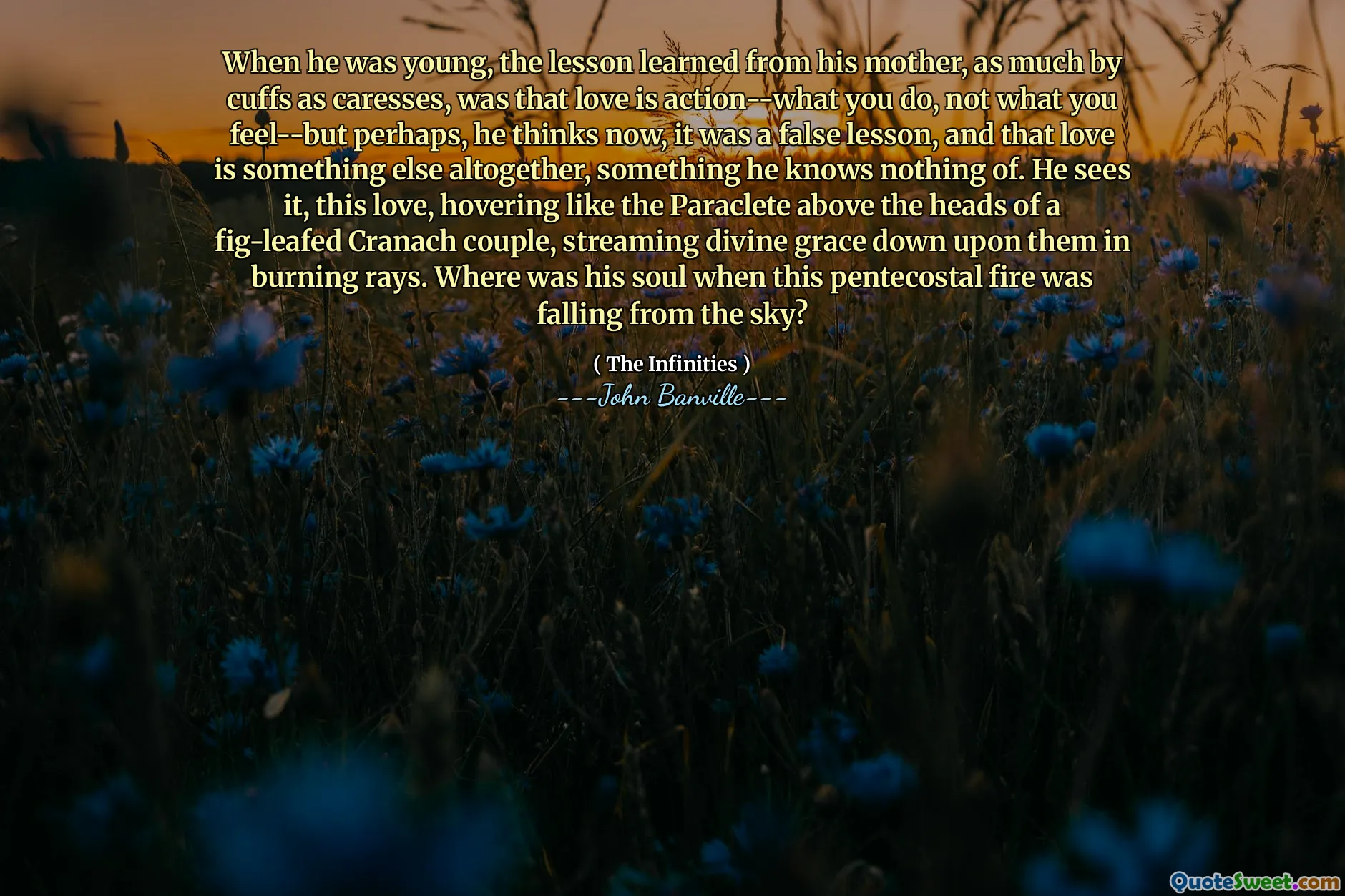
When he was young, the lesson learned from his mother, as much by cuffs as caresses, was that love is action--what you do, not what you feel--but perhaps, he thinks now, it was a false lesson, and that love is something else altogether, something he knows nothing of. He sees it, this love, hovering like the Paraclete above the heads of a fig-leafed Cranach couple, streaming divine grace down upon them in burning rays. Where was his soul when this pentecostal fire was falling from the sky?
This passage delves into the complex and often paradoxical nature of love, exploring its formative influences and elusive essence. The narrator reflects on childhood lessons imparted by his mother—lessons learned through both discipline and tenderness—that equated love with action rather than emotion. This notion suggests a pragmatic or perhaps a stoic view of love, emphasizing deeds over feelings as the true measure of affection and commitment. However, as he considers age and experience, he questions this early understanding, contemplating whether love might be something entirely different—something beyond actions or words—a profound, almost divine mystery. The imagery of love as hovering like the Paraclete, representing the Holy Spirit in Christian tradition, elevates it to a sacred and transcendent plane, emphasizing its divine grace and spiritual significance. The description of divine rays streaming down over a Cranach painting evokes a sense of awe and divine intervention, hinting at love's sacred and mysterious qualities. The question about his soul during this divine fire underscores human vulnerability and the quest for spiritual and emotional understanding. It prompts a reflection on whether one can truly grasp the nature of love or if it remains an ineffable, divine force that intercedes in human lives from above, leaving us both inspired and bewildered. Ultimately, this quote invites an exploration of love’s true nature—whether it's an active choice, a divine gift, or something profoundly beyond human comprehension.






